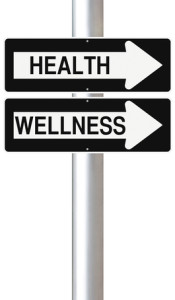Health Coach Jobs: Working in the Healthcare Industry to Drive Behavior Change
Today, chronic disease management ranks as one of the top priorities in the healthcare industry. With the total costs in the US for direct health care treatment of chronic health conditions totaling $1.1 trillion, ensuring patients know how to manage their health and prevent costly health episodes is a primary goal.
More and more healthcare organizations are turning to Health Coaches to drive patient motivation and engagement with healthy behaviors.
Health Coaches are helping patients with stress management, health goal-setting, time management, and other activities needed to improve their lifestyles and overall wellness.
Health Coaches possess the skills needed to help patients develop intrinsic motivation for healthy behavior changes, with each visit bringing them closer to managing their own health and making lifelong changes.
Health Coaches understand there are different types of paths for different types of people; with the motivator being unique to each patient’s health goals and lifestyle changes required to meet those goals.
Ultimately, Health Coaches are transforming the healthcare industry by having a powerful impact on clients’ and patients’ lives.
Getting the best training is key to your success as a Health Coach. Great Health Coaches find the best accredited program that matches their goals and provides the skills and tools to be the best in the field of health and wellness. And the Functional Diagnostic Nutrition® (FDN) course is that program!
FDN training sets you apart from all other Health & Wellness Coaches by helping you to identify the real physiological, biochemical, and behavioral problems that will allow clients to improve overall health & well-being.
That is why FDN practitioners are the most successful Health Coaches in health & wellness today.
Originally printed on the FDN blog. Reprinted with permission.
Reed Davis is a Nutritional Therapist and has been the Health Director and Case Manager at a wellness clinic San Diego for over 15 years. Reed is the Founder of the Functional Diagnostic Nutrition® Certification Course, offering functional lab training, data-driven protocols, tools and leadership you need so professionals confidently solve your client’s health issues and grow your career.




 I have decided to look at the bright side of this event, and see it as an opportunity. While many are not in my particular position, and are actually out of job and income due to this pandemic, I want you to reframe it. Change the paradigm of this being a negative, to this being a time for catching up, reflecting, and perhaps actually changing yourself.
I have decided to look at the bright side of this event, and see it as an opportunity. While many are not in my particular position, and are actually out of job and income due to this pandemic, I want you to reframe it. Change the paradigm of this being a negative, to this being a time for catching up, reflecting, and perhaps actually changing yourself.
 Our challenge in the midst of a pandemic situation is how we distance from each other while remaining connected to each other. Yes, follow the CDC guidelines for social distancing. We can still greet each other with elbow bumps, and then go for a walk, a bike ride, a cruise in kayaks, etc., and continue to avoid the proximity that puts us at any risk. We can connect via phone and receive the nourishment of live, interactive conversation that texting and e-mail don’t quite match. We can climb on board a web-based platform such as Zoom and Skype where we are face-to-face for our conversation. We also have all sorts of apps such as Facetime, WeChat, and many more that allow us to have face-to-face interaction for live conversations.
Our challenge in the midst of a pandemic situation is how we distance from each other while remaining connected to each other. Yes, follow the CDC guidelines for social distancing. We can still greet each other with elbow bumps, and then go for a walk, a bike ride, a cruise in kayaks, etc., and continue to avoid the proximity that puts us at any risk. We can connect via phone and receive the nourishment of live, interactive conversation that texting and e-mail don’t quite match. We can climb on board a web-based platform such as Zoom and Skype where we are face-to-face for our conversation. We also have all sorts of apps such as Facetime, WeChat, and many more that allow us to have face-to-face interaction for live conversations.

 Those living with arthritis can live well and have a good quality of life by employing lifestyle interventions as medicine, in conjunction with, prevention, joint protection, weight management, physical activity, wise food choices, stress management and a good medical regimen. By combining all these necessary recommendations into a personalized Wellness Strategy and Plan, a coach can assist an arthritis patient in organizing what is important for them to live life well. The Wellness Plan then becomes a map by which to navigate toward managing and maximizing the patient’s best life possible.
Those living with arthritis can live well and have a good quality of life by employing lifestyle interventions as medicine, in conjunction with, prevention, joint protection, weight management, physical activity, wise food choices, stress management and a good medical regimen. By combining all these necessary recommendations into a personalized Wellness Strategy and Plan, a coach can assist an arthritis patient in organizing what is important for them to live life well. The Wellness Plan then becomes a map by which to navigate toward managing and maximizing the patient’s best life possible.
 these gaps between the medical team and patient by following up with patients and guiding a patient-centered approach, asking about needs and addressing obstacles, addressing health literacy, cultural issues and social-class barriers.
these gaps between the medical team and patient by following up with patients and guiding a patient-centered approach, asking about needs and addressing obstacles, addressing health literacy, cultural issues and social-class barriers.

